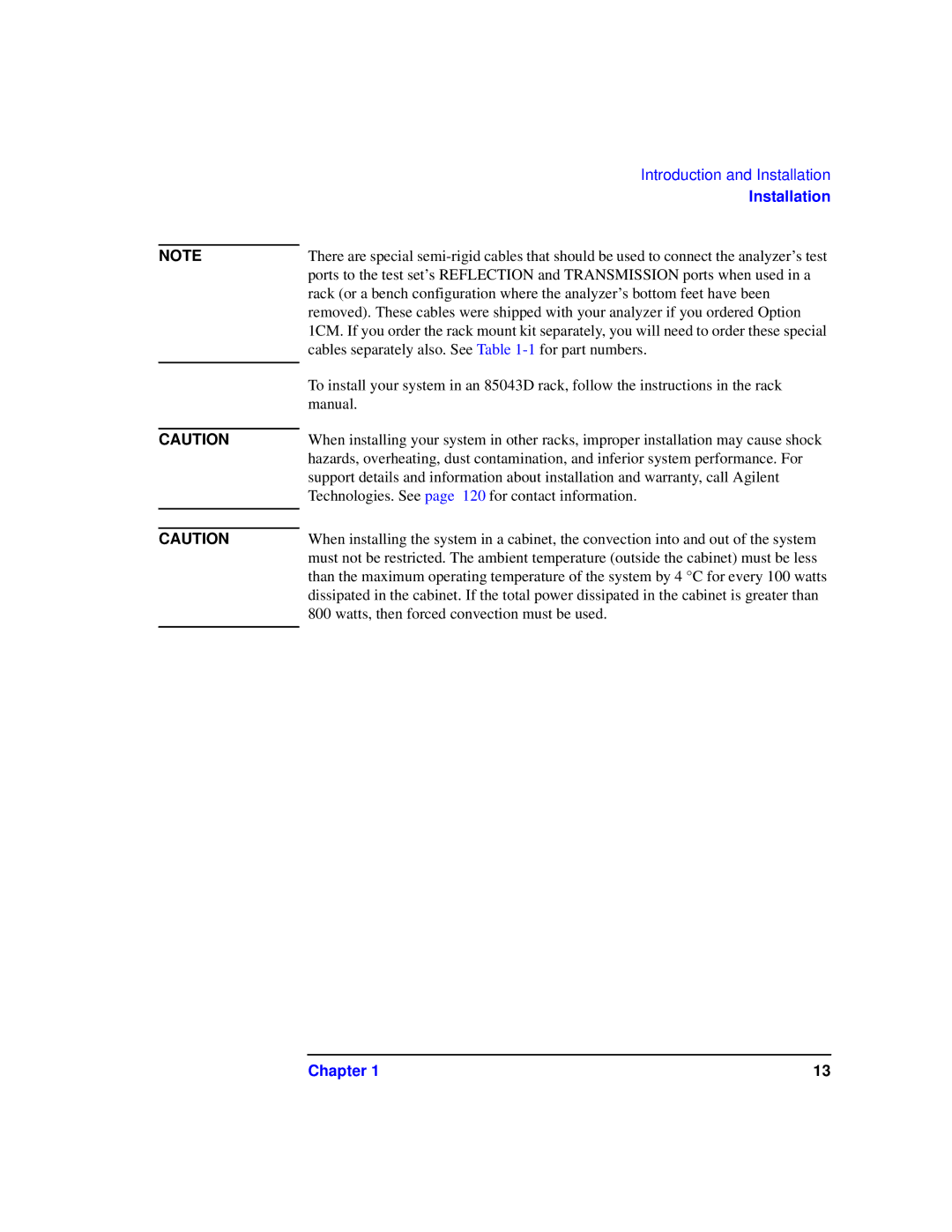
NOTE
CAUTION
CAUTION
Introduction and Installation
Installation
There are special
To install your system in an 85043D rack, follow the instructions in the rack manual.
When installing your system in other racks, improper installation may cause shock hazards, overheating, dust contamination, and inferior system performance. For support details and information about installation and warranty, call Agilent Technologies. See page 120 for contact information.
When installing the system in a cabinet, the convection into and out of the system must not be restricted. The ambient temperature (outside the cabinet) must be less than the maximum operating temperature of the system by 4 °C for every 100 watts dissipated in the cabinet. If the total power dissipated in the cabinet is greater than 800 watts, then forced convection must be used.
Chapter 1 | 13 |
